Case 11
- The LBC Series & Final Years
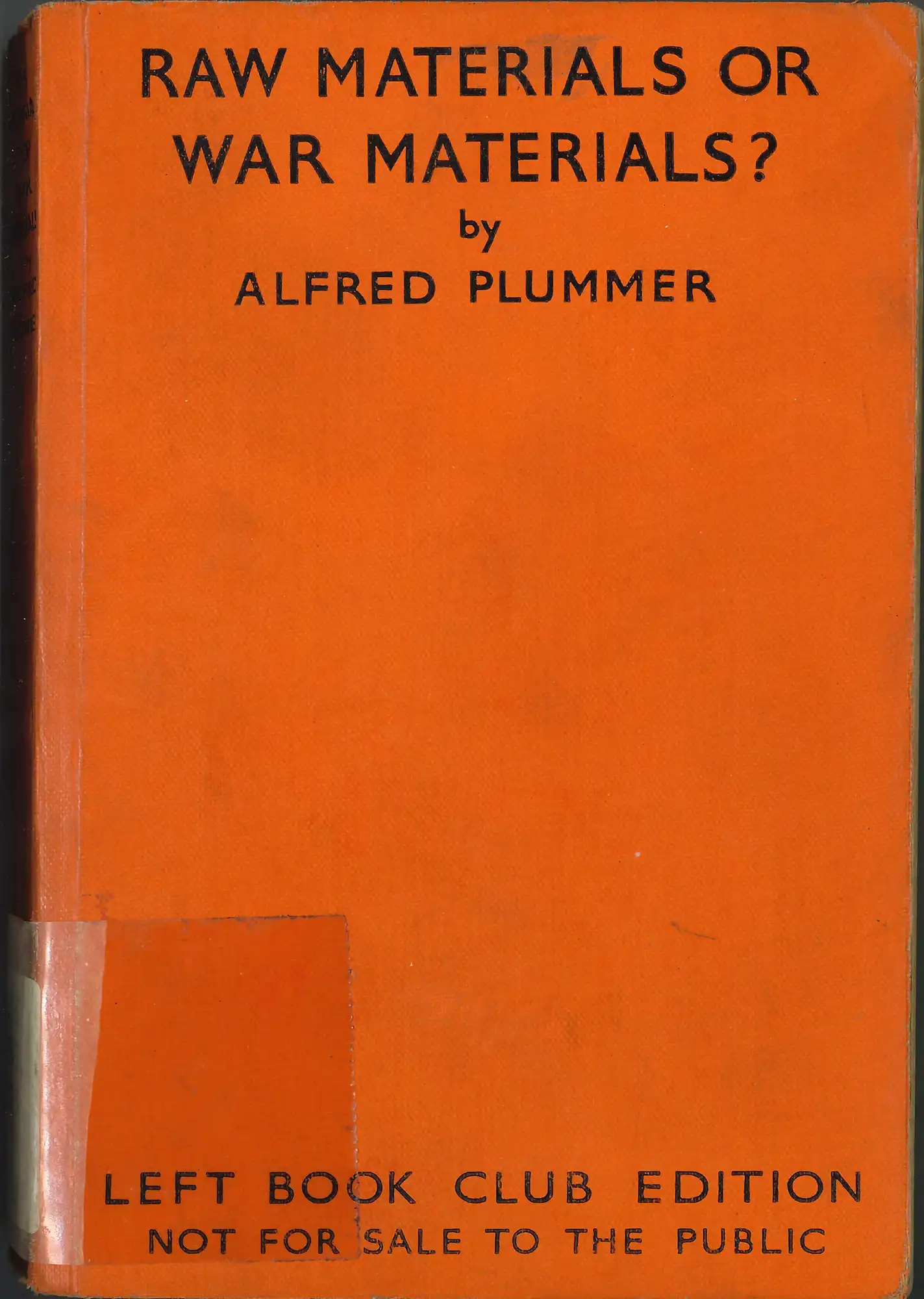
Alfred Plummer, Raw materials or war materials? (1937). LBC 355.023 PLU
One of Gollancz’s strategies for reaching a wider reading public was the creation of various series, five in total: Additional Books, Topical Books, Supplementary Books, Educational Books, and Classics. Alfred Plummer’s Raw materials or war materials? (1937) was part of the Additional series, those new books selected from Gollancz’s other publications. Clifford Odets’s Waiting for Lefty: a play in six episodes was a Supplementary series title, those deemed of limited interest. A performance of this play, made up of seven related vignettes framed around a meeting of cab drivers planning a labour strike, occurred in Wellington in December 1939 to an audience of 300. The economist R. H. Tawney (1880–1962) was forty when his The Acquisitive Society was first published by Harcourt Brace, & Co in 1920. Gollancz thought well enough of his attack on capitalism to reprint it as a LBC ‘Classic’ in 1937.
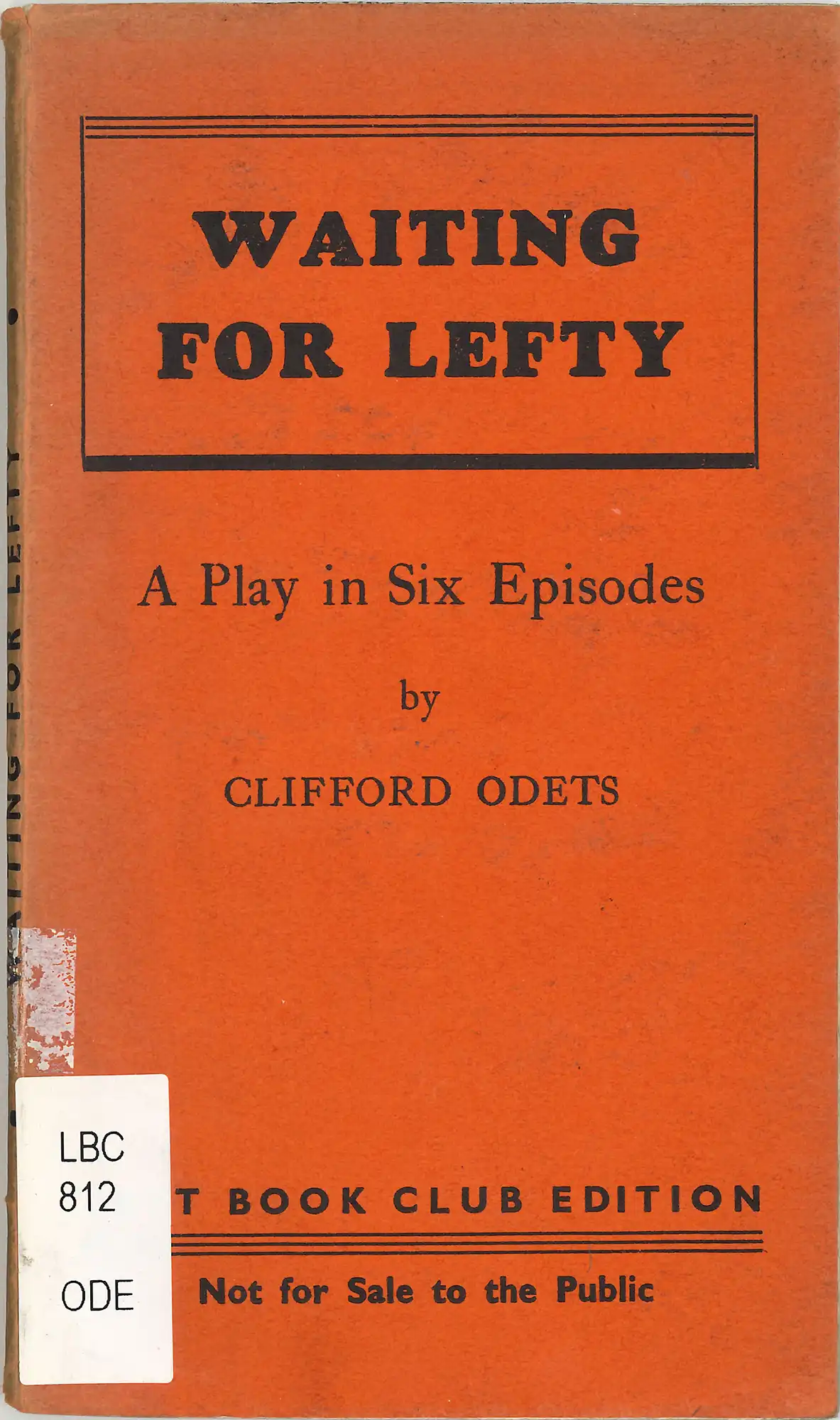
Clifford Odets, Waiting for Lefty: a play in six episodes. (1938) LBC 812 ODE
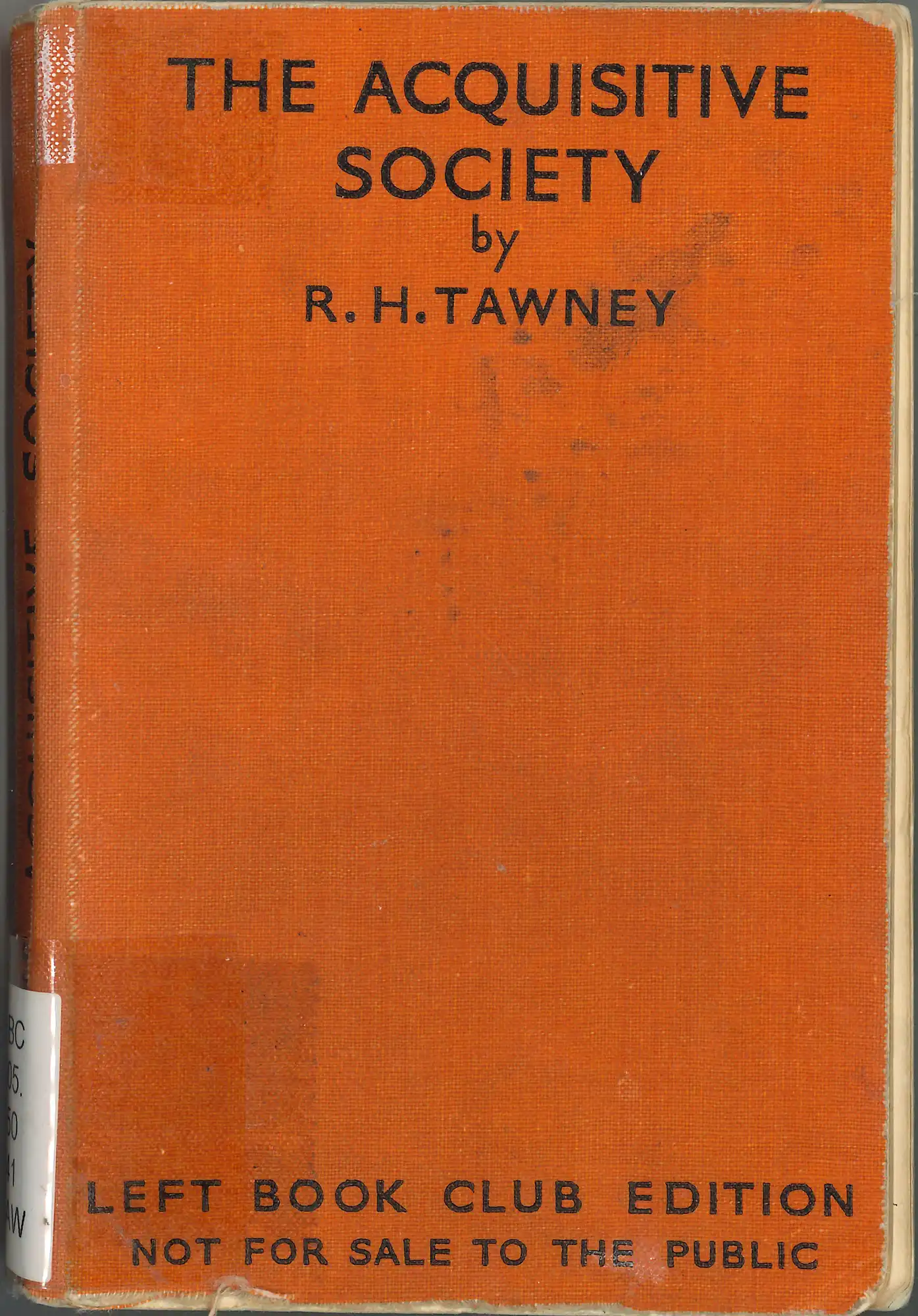
R. H. Tawney, The acquisitive society. (1937). LBC 305.550941
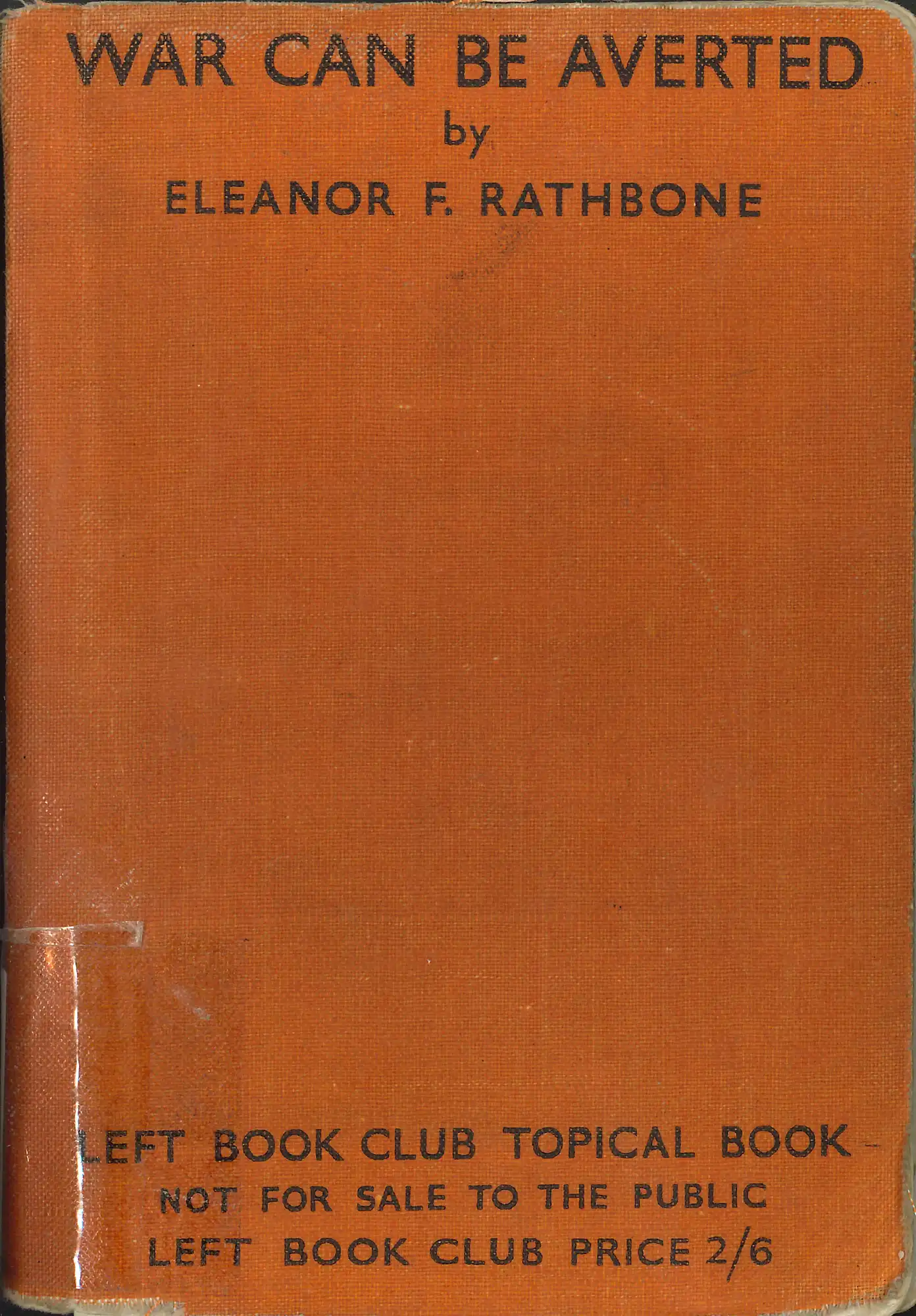
Eleanor F. Rathbone, War can be averted: the achievability of collective security. (1938). LBC 327.116 RAT
Eleanor Rathbone (1872-1946) was a prominent if not vociferous critic of Stanley Baldwin’s male-dominated parliament and their non-interventional stand towards Spain and the Spanish Civil War. Indeed, Rathbone makes this clear in her War Can Be Averted (January 1938): ‘The attitude of the responsible Ministers, has, rather, been like that of a fastidious gentleman walking with averted nose past a butcher’s shop’. She was a courageous woman, one of seven to be elected to Parliament in 1929. Forthright in her belief in democracy, peace and liberty, Gollancz made the right move to include her title into his Topical Book series, those titles that dealt with matters of urgency.

Eleanor F. Rathbone, War can be averted: the achievability of collective security. (1938). LBC 327.116 RAT
Open image in new window
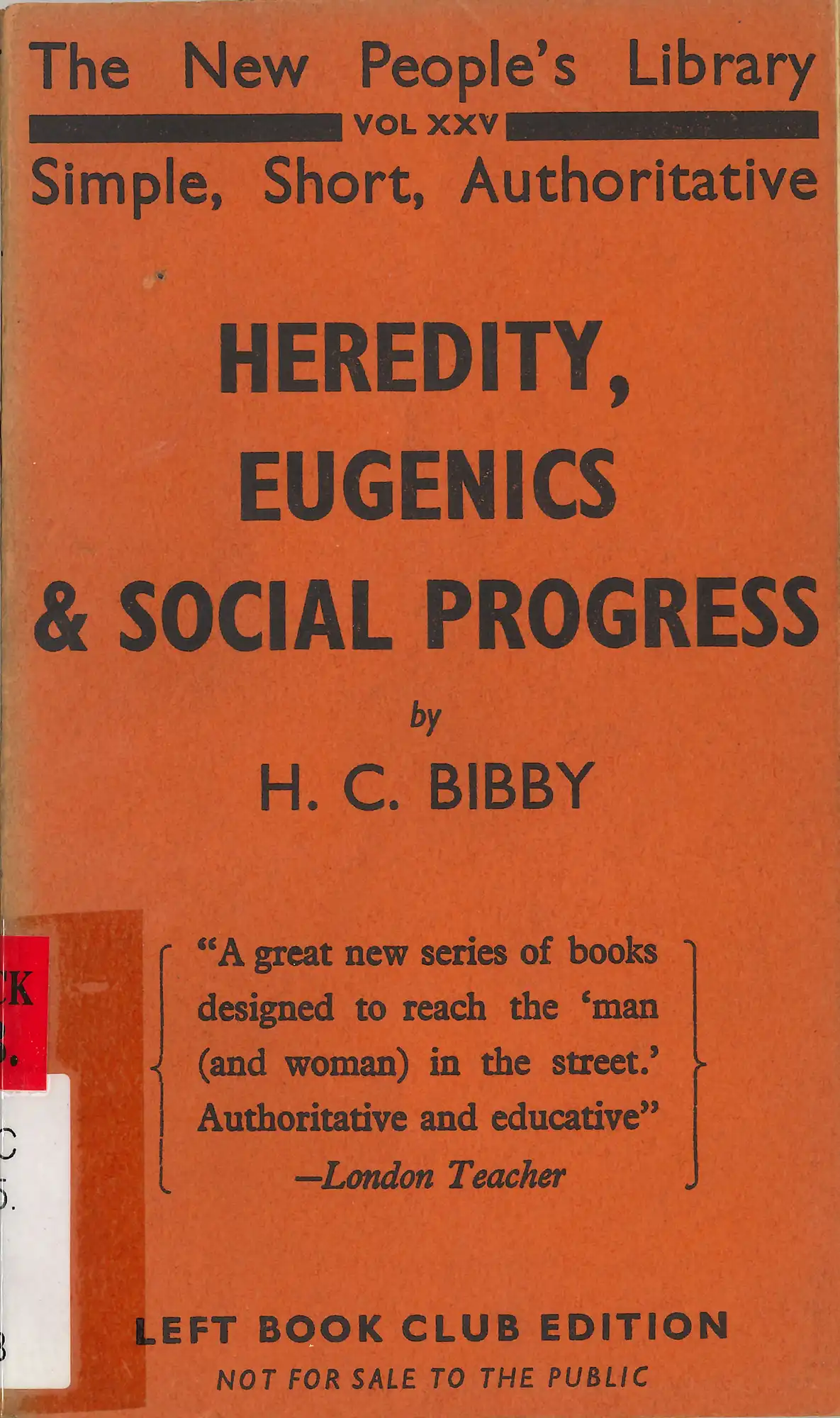
Cyril Bibby, Heredity, eugenics and social progress. (1939). LBC 575.1 BIB
As the header reads on the cover: ‘A great new series of books designed to reach the ‘man (and woman) in the street’. Inside there is further clarification: the titles were to be a basic introduction; be authoritative, be simply written, and for the reader, no prior knowledge of the subject was required. This was Gollancz’s Educational series, also termed ‘The New People’s Library’, which not only included Bibby’s Heredity, eugenics, and social progress, but also (among others) Emile Burns’s Money (1937), George Sacks’s The Jewish Question (1937), and Gordon Schaffer’s Riches and Poverty (1939).
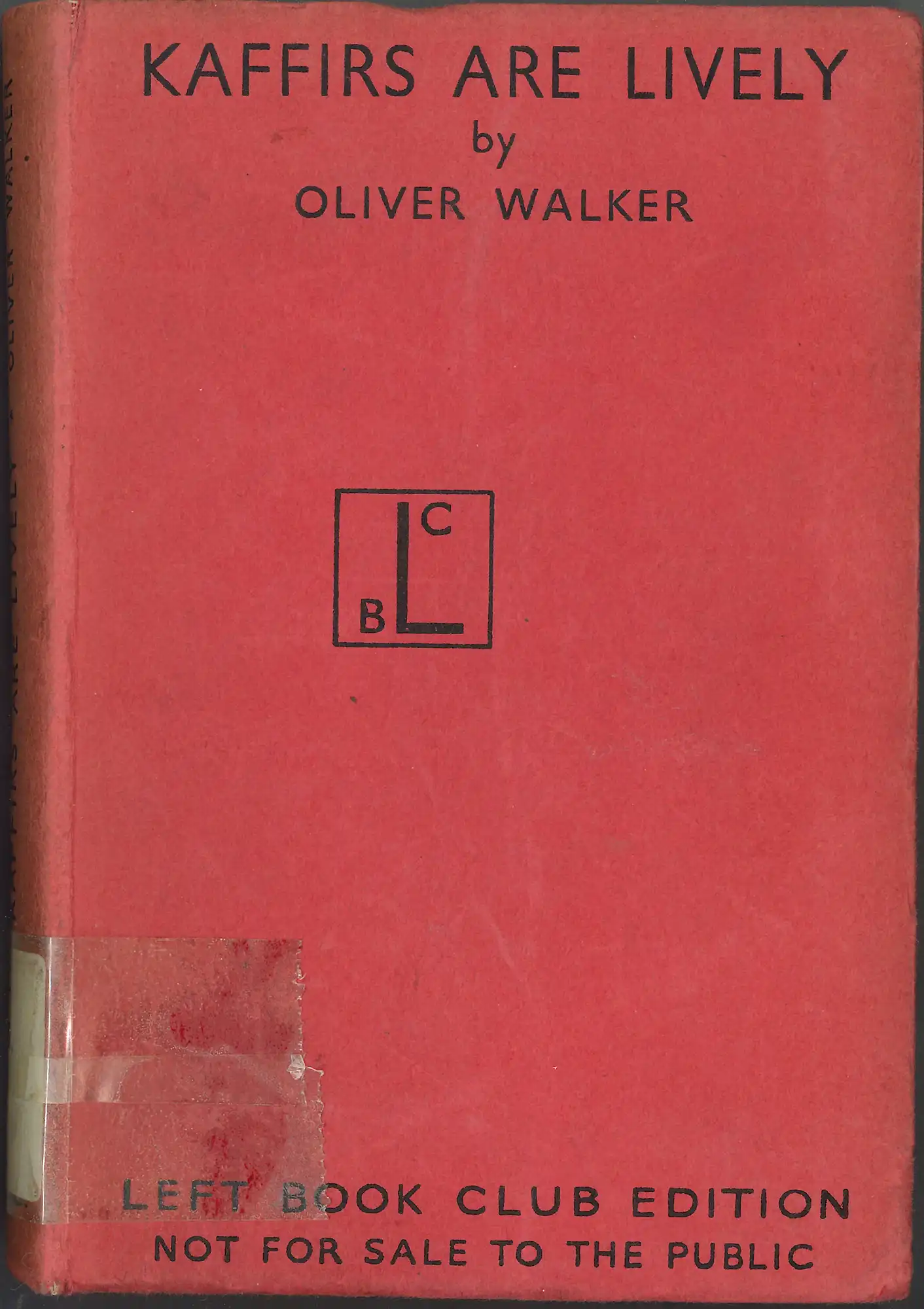
Oliver Walker, Kaffirs are lively: being some backstage impressions of the South African Democracy. (1948). LBC 323.168 WAL
On 23 August 1939, the Soviet-German Pact of non-aggression (Molotov–Ribbentrop Pact) was signed which effectively changed the attitudes of many LBC members towards Russia and communism. Seen by many as a shameful act, it was to many Club members the beginning of the end. When war was declared in September 1939, there was a need for further internal reappraisal. There was also division: Gollancz supported the war as an anti-fascist one; Strachey at first was against the war, later changing his mind; and Laski was for it. Division and dissension caused a fall in membership, from 57,000 in 1939 to 15,000 in 1942. And finally, 7000. In 1942, Gollancz even suggested changing the name of the LBC to ‘The League of Victory and Progress’. It was not welcomed by members and was never actioned. LBC publications slowly dried up, with the last book issued being G.D.H. Cole’s The Meaning of Marxism in November 1948. On display are four of the nine produced in that last year of publication.

Oliver Walker, Kaffirs are lively: being some backstage impressions of the South African Democracy. (1948). LBC 323.168 WAL
Open image in new window
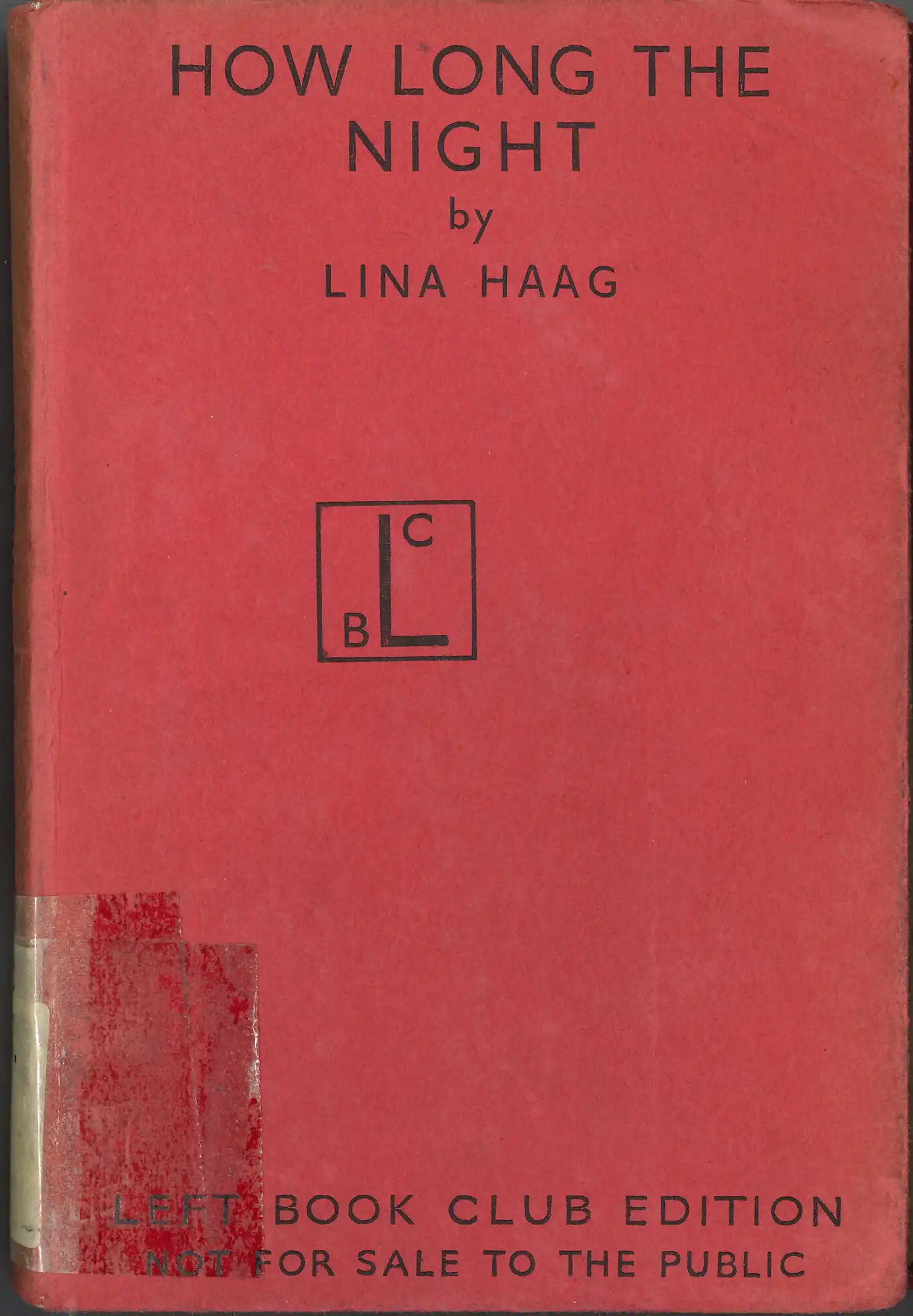
Lina Haag, How long the night. (1948). LBC 943.086 HAA
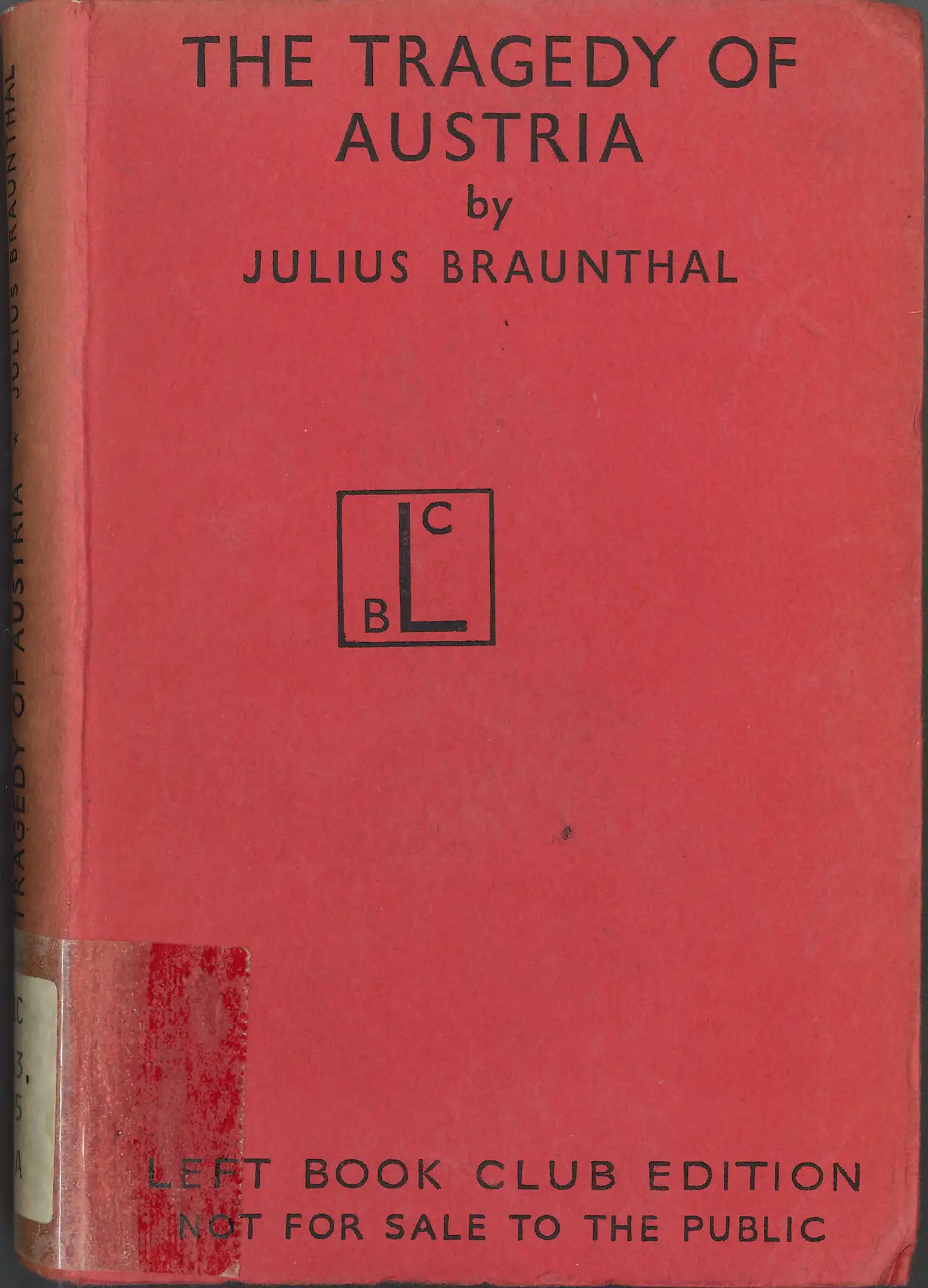
Julius Braunthal, The tragedy of Austria. (1948). LBC 943.605 BRA
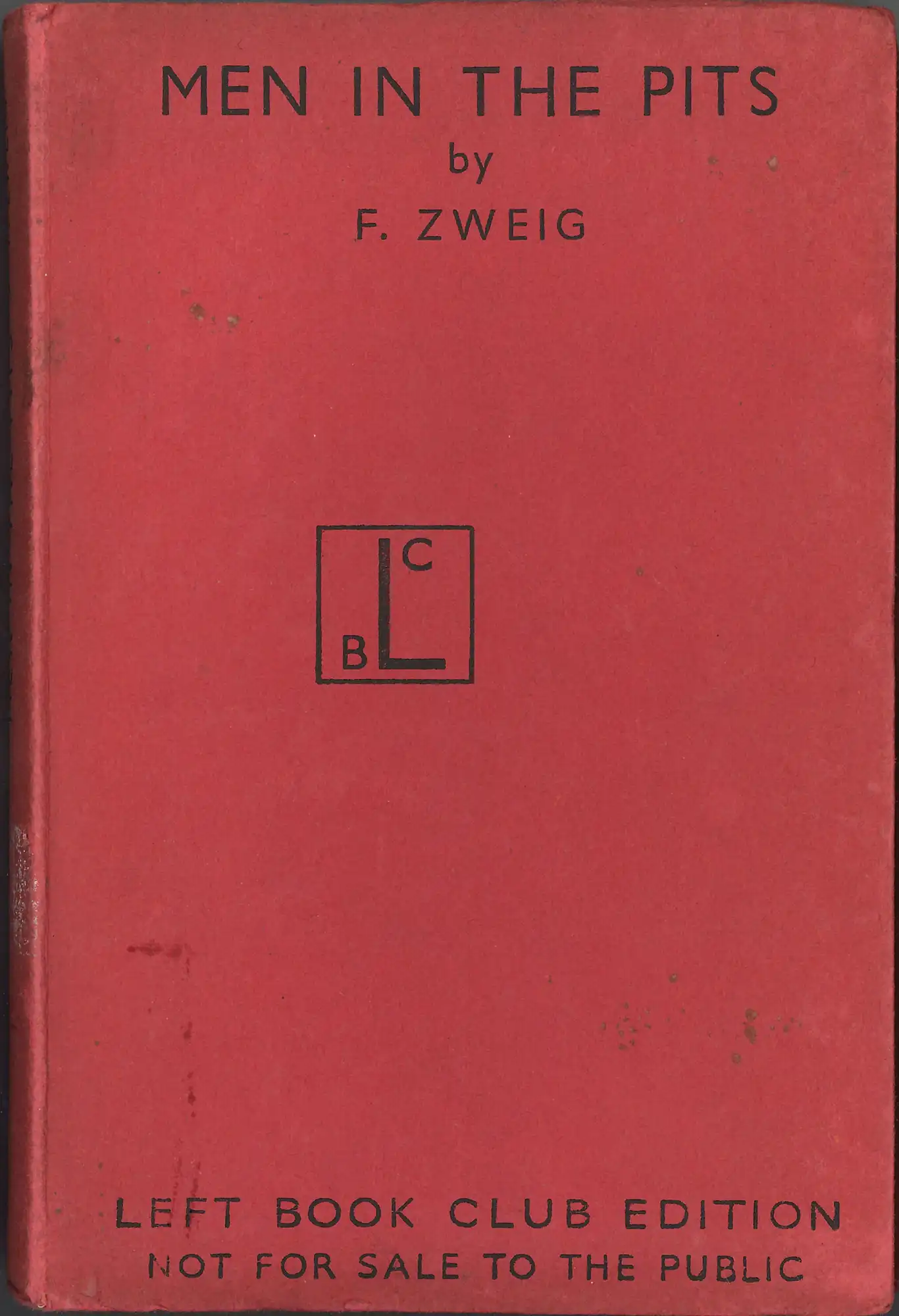
Ferdynand Zweig, Men in the pits. (1948). LBC 622.334 ZWE
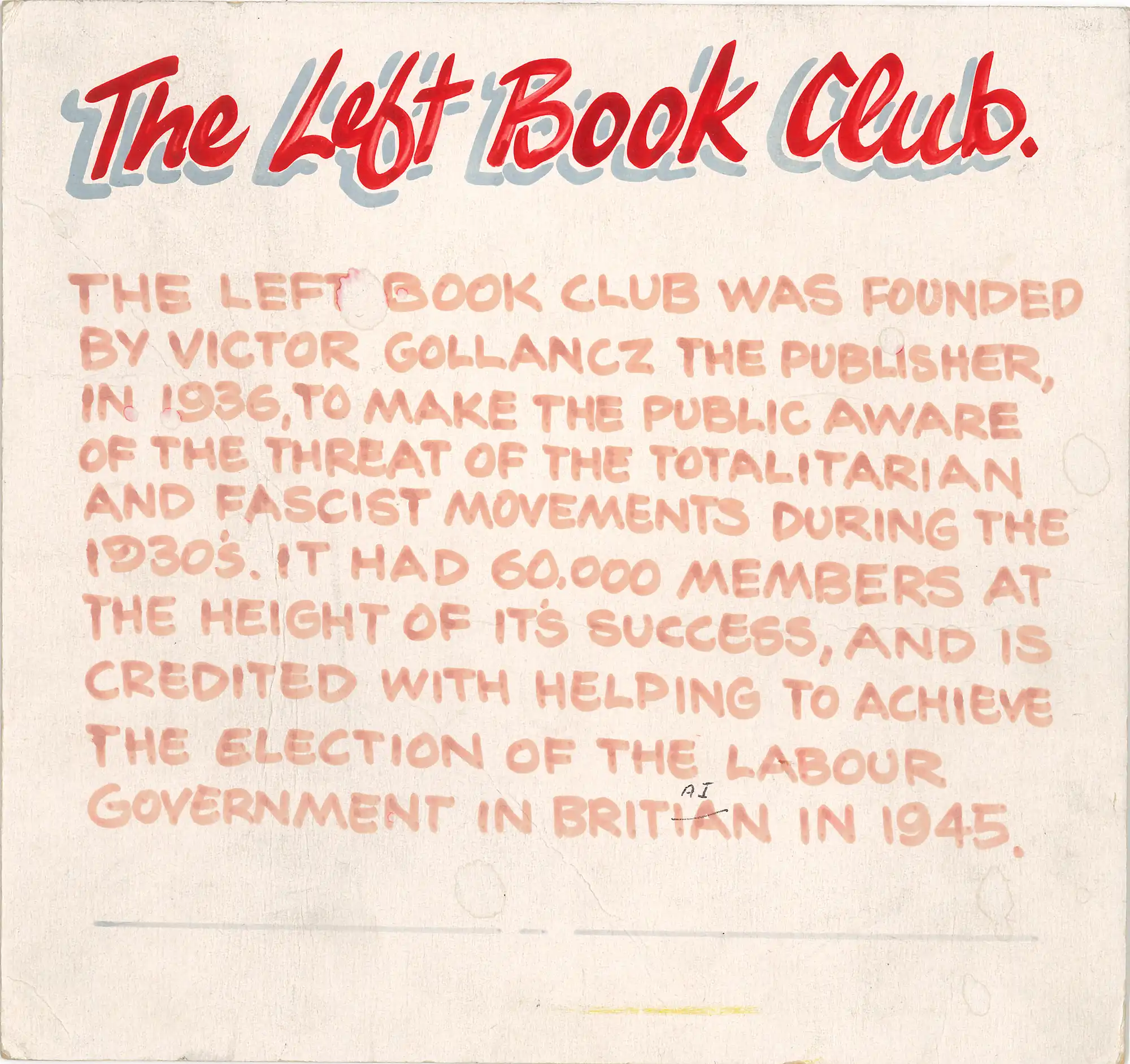
Dunedin Public Library, ‘The Left Book Club’ sign, c. 1970
In the past, some unknown librarian with vision gathered all the Left Book Club titles together into one discrete collection. Some effort was made to highlight the importance of this collection – a remarkable literary phenomenon that occurred in Britain in the 1930s, with some world-wide ripples. The display notice was probably created about the 1970s.









